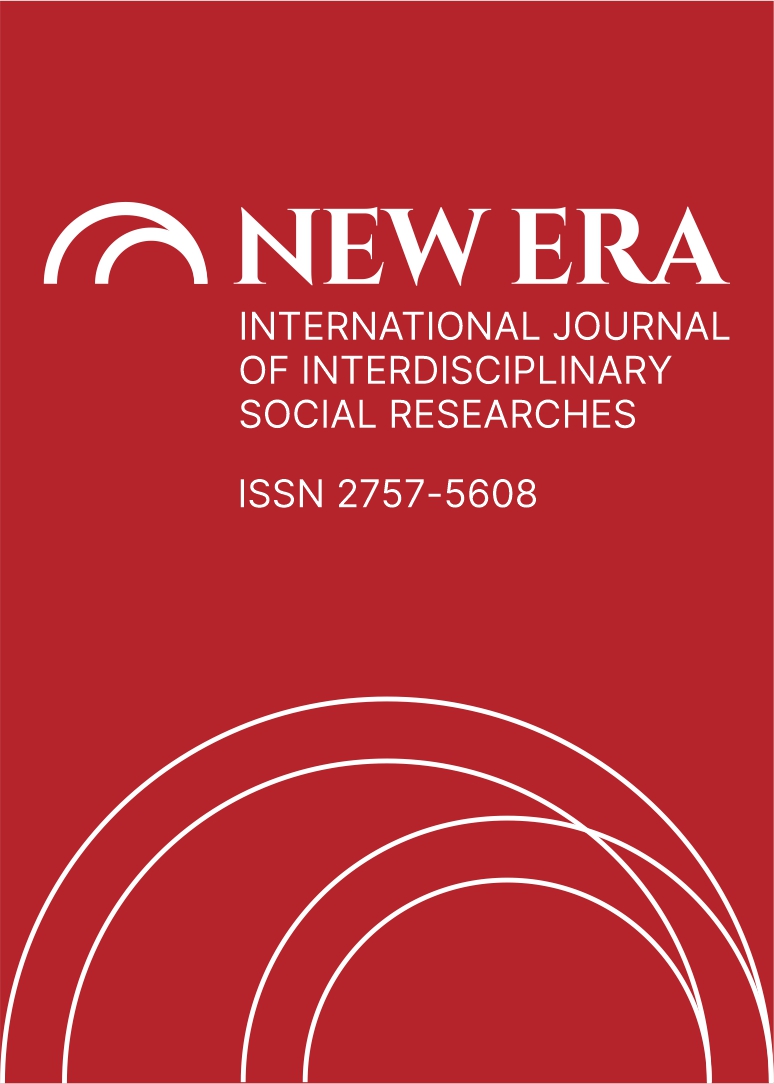THE EVALUATINON OF FREE WILL IN ARTIFICIAL INTELLIGENCE VIA THE MOVIE FREE GUY IN THE FRAMEWORK OF SPINOZA’S FREE WILL WIEW
DOI:
https://doi.org/10.5281/zenodo.7443270Abstract
The idea of controlling how we can behave, in other words, all of our actions depend on us is a part of something which makes us look upon life as much more valuable. Because in this way the achievements and failures in our lives would be really in our hands. So, are we really in control of our actions? Are we responsible for our actions? The basic question of this study is whether free will exists in artificial intelligence, which is the matter of the philosophers mentioned as the free will problem. In this study, the existence of free will in artificial intelligence is examined in the framework of Spinoza’s Ontology of Free Will and evaluated via the movie “Free Guy”. According to this evaluation, it is because the main character of the movie is not free to choose how to operate, it is claimed that free will in artificial intelligence does not exist as to Spinoza’s Free Will comprehension.
References
Balaguer, M. (2014) Free Will, MIT Press: Massachusetts.
Balanuye, Ç. (2012) Spinoza: Bir Hakikât İfadesi, Say Yayınları: İstanbul.
Balanuye, Ç. (2016) Spinoza’nın Sevinci Nereden Geliyor?. Ayrıntı Yayınları: İstanbul.
Çevik, M. (2017) Will It Be Possible for Artificial Intelligence Robots to Acquire Free Will and Believe in God?. Beytülhikme Philosophy Circle, 7(2), 75-87.
Doğan, M. (2021). Yapay Zekâ ve Özgür İrade: Yapay Özgür İradenin İmkânı, TRT Akademi, 6 (13), 788-811. DOI: 10.37679/trta.969912
Doyle, B. (2016) Free Will: The Scandal in Philosophy, The Donohue Group: Cambridge.
Gültekin, A. & Çelebi, E. (2021). Spinoza Ontolojisi Bağlamında Yapay Zekâ ve Bir Duygu Varlığı Olan İnsan Üzerine Bir Değerlendirme, Birey ve Toplum Sosyal Bilimler Dergisi, 11 (2), 27-42.
Harris, S. (2012) Free Will, Free Press: New York.
Hobbes, T. (2007). Leviathan, İstanbul: Yapı Kredi Yayınları.
Mawson, T. (2011). Free Will: A Guide for the Perplexed. Continuum: London.
Krausova, A., & Hazan, H. (2013). Creating free will in artificial intelligence. Beyond AI: Artificial Golem Intelligence, 96.
McCarty, J., (2007) “What is Artificial Intelligence?”, http://www-formal.stanford.edu/jmc/whatisai.pdf
McCarthy, J., Minsky, M. L., Rochester, N., ve Shannon, C. E. (1955) A Proposal for the Dartmouth Summer Research Project on Artificial Intelligence.
Müller, V. C. (2012) “Introduction: Philosophy and Theory of Artificial Intelligence”, Mind & Machines, 22, 67-69.
Platon, (1999) Devlet, İş Bankası Yayınları: İstanbul.
Say, C. (2018) 50 Soruda Yapay Zekâ, İstanbul: 7 Renk Basım.
Simon, H. A., Newell, A., (1958) “Heuristic Problem Solving: The Next Advance in Operations Research”, Operation Research, 6(1), 1-10.
Spinoza, B. (2011) Etika, Dost Yayınevi: İstanbul.
Turing, A., (1950) “Computing Machinery and Intelligence,” Mind, 59(236), 433–460.
Zambak, A. (2018) “Free Will and Artificial Intelligence”. MetaZihin: Yapay Zekâ ve Zihin Felsefesi Dergisi (2): 167-181.
Downloads
Published
How to Cite
Issue
Section
License
Copyright (c) 2022 NEW ERA INTERNATIONAL JOURNAL OF INTERDISCIPLINARY SOCIAL RESEARCHES

This work is licensed under a Creative Commons Attribution-NonCommercial 4.0 International License.


